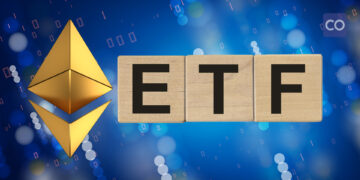P2P, short for peer-to-peer, refers to a decentralized network or computing structure that distributes tasks or workloads among multiple computer systems, each functioning as a separate peer. These P2P networks have the capability to distribute any form of digital data, including digital currencies.
Within a peer-to-peer (P2P) network, each participant, also known as a node, contributes to the overall functionality and sustainability of the system. In this scenario, every node operates as a client and a server in relation to its counterparts. This implies that each participant has an equal role in the network, which involves receiving and transmitting digital information.
Hence, the architecture of a Peer-to-Peer (P2P) network is maintained by its participants, who can supply and utilize resources. The absence of a central server or host distinguishes P2P systems from the conventional client-server models, where data is disseminated in a unidirectional manner (from a centralized server to its clients).
The decentralized structure of the peer-to-peer (P2P) systems enhances their resilience to cyber threats and improves their scalability. As the number of users increases, the system becomes more robust and capable of handling more transactions. Larger P2P networks offer superior security due to the absence of a single point of failure, a common vulnerability in traditional models.
The advent of peer-to-peer architecture gained prominence in 1999 following the introduction of file-sharing systems. This allowed users to exchange digital audio files without needing a central server or host. Subsequently, a multitude of P2P networks have been developed. Notable instances with diverse applications encompass BitTorrent (used for file-sharing), Tor (utilized for anonymous communication), and Bitcoin (a decentralized financial system).
Peer-to-peer (P2P) technology is crucial in the blockchain and cryptocurrency sectors. Satoshi Nakamoto, the creator of Bitcoin, described it as a “Peer-to-Peer Electronic Cash System.” This implies that Bitcoin users can transact globally without needing a central server or intermediaries. In simpler terms, Bitcoin is a decentralized and distributed currency upheld by a large network of computer nodes.






